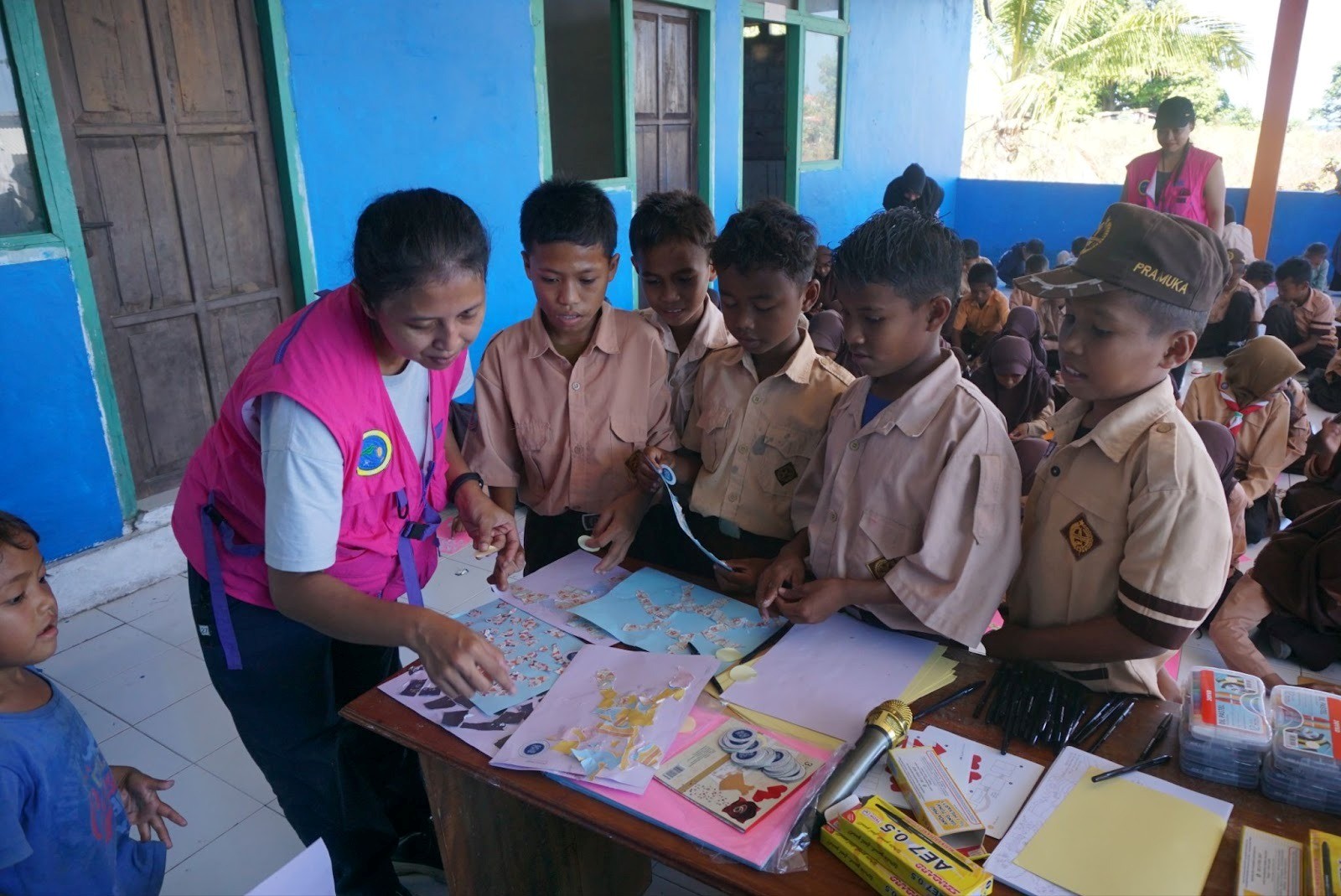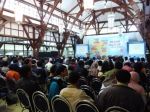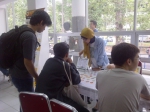Discussing Oceanographic Phenomena and Countermeasures Against Water Crisis in Indonesia, Oceanography Students of ITB Hold TRITON Bootcamp
By Adi Permana
Editor Adi Permana

Bandung, itb.ac.id—Oceanography students who are members of Oceanography Students Association “TRITON” have successfully held an event called TRITON Bootcamp. The event was held on Saturday (12/3/2022) to celebrate World Water Day. Furthermore, the event itself was focused to emphasize on the great importance of the roles of the sea in the context of hydrological conditions and the availability of clean water in Indonesia.
The speakers present at the event were Dr. Lamona Irmudyawati Bernawis S.Pi., M.Sc., and Dr.rer.nat. Rima Rachmayani, S.Si., M.Si. Both of whom are lecturers in Oceanography and Earth Sciences at ITB.
Dr. Lamona started the subject by explaining the oceanographic phenomena that can affect the hydrological cycle in Indonesia. “The ocean and atmosphere are all related to each other. Both of which work together to move heat and freshwater around the world. The exchange occurring in the ocean-atmosphere system is also the key to climate change,” she explained.
West monsoon blows from Asia to Australia between October and April. “Warm air contains more water vapor than cold air does, and so Indonesia experiences the rainy season during this period. Conversely, the east monsoon blows from Australia back to Asia when Australia is experiencing the winter season, which makes the cold air very dry and lacks moisture. Consequently, Indonesia experiences the dry season during this time instead,” she described.

Another affecting phenomena are the El Niño-Southern Oscillation (ENSO) and the Indian Ocean Dipole (IOD). ENSO has three phases, namely El Nino, La Nina, and neutral. El Nino produces a long dry season whereas La Nina generally increases the rainfall occurrence in Indonesia. A positive IOD reduces the sea surface temperature of the eastern part of the Indian Ocean while a negative IOD has the reverse effect.
The occurring hydrological cycle also affects the availability of clean water in Indonesia. As a matter of fact, 1 of 8 Indonesians does not have access to clean water. Moreover, climate change can create a clean water crisis since it has the potential to cause severe droughts and floods. “In addition, the need for clean water continues to rise along with the increase in population, depletion in groundwater, inefficiencies in water management, and the continuance of water pollution,” Dr. Rachmayani explained.
According to Dr. Rachmayani, there are three natural efforts that can be done in order to preserve water, namely artificial aquifer recharge, rainwater harvesting, and mangrove cultivation along the coast. Artificial aquifer recharge utilizes artificial wells to take the water contained in the aquifer without actually reducing its amount. Rainwater harvesting is an effort to capture rainwater and then filter it. These two methods can be performed on a domestic or large scale. Mangrove forests can prevent seawater intrusion and be natural filters to protect the quality of clean water in coastal areas.
For the needs of drinking water, the clean water that has been stored previously can be boiled, chlorinated, or purified in more technologically advanced techniques to eliminate bacteria, viruses, fungi, and other parasites. As the quantity and quality of clean water begin to decrease, an innovation has been finally brought up to desalinate seawater, which accounts for 96% of the total water on Earth.
One thing that Dr. Rachmayani will realize in her community service program on the eastern coast of Indonesia is to convert seawater into freshwater using the reverse osmosis method. “To put it simply, seawater is pressured to allow it to pass through a semipermeable membrane. On this semipermeable membrane, dissolved salts will be filtered, which produces consumable freshwater after being purified later,” she explained.
Water is one of the essential, basic needs for all living things. If we cannot make a technology to preserve it, we can implement good habits to save and conserve it. By saving water, we also save lives and our very existence.
Reporter: Maharani Rachmawati Purnomo (Oceanography, 2020)
Translator: Ariq Ramadhan Teruna (Faculty of Industrial Technology, 2021)

.jpg)
.jpg)


.jpg)


